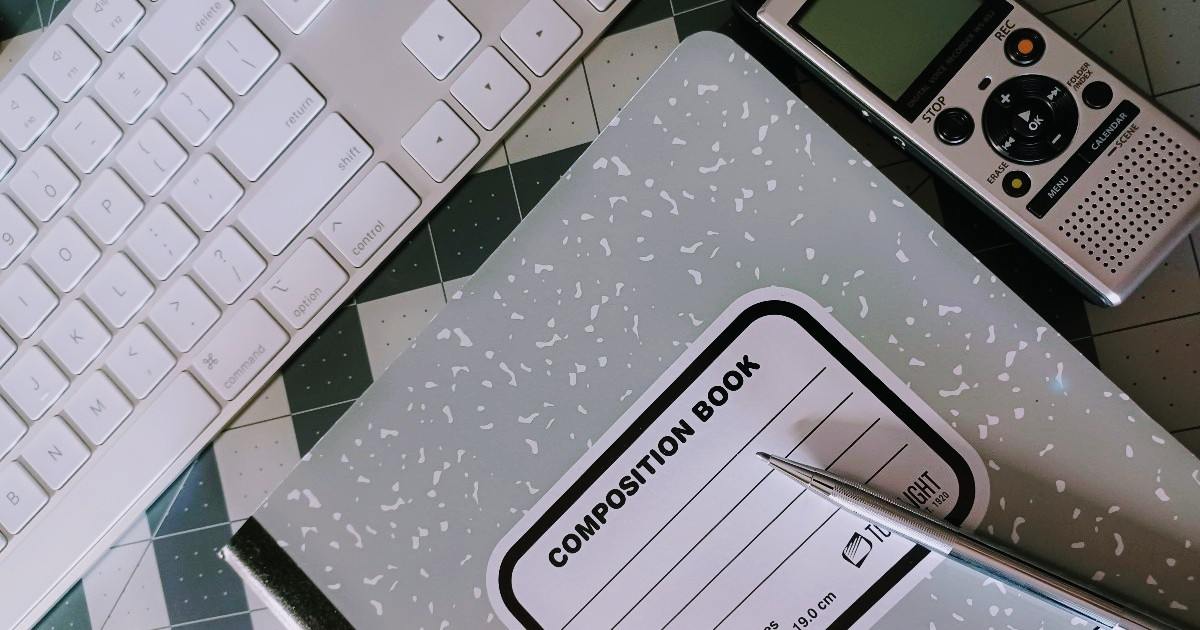Do you have the creative writing skills to tell a good story, a talent for building rapport with sources, and the journalism soft skills to interview people effectively?
If you answered yes, you’re set to become a successful freelance writer.
If you don’t have the confidence to say yes, give yourself time to develop those skills. But the skills that will help you uncover the best stories are your journalism soft skills.

TL;DR
- Freelance writing requires journalism soft skills like building rapport with sources and interviewing people effectively.
- Journalism soft skills are essential for uncovering the best stories and writing engaging feature articles.
- The five journalism soft skills of ace reporters are loyalty, curiosity, perseverance, adaptability, and empathy.
- Loyalty is being true to the story, providing high-quality articles, being responsive to your audience, and reporting the facts.
- Cultivating journalism soft skills can boost confidence, expand writing abilities, and give you enthusiasm and a clear conscience.
You can develop the journalism soft skills needed to write feature articles
An old belief goes something like this: “Journalists, reporters, and storytellers are born and not made.” There’s also the old saying, “There’s an exception to every rule.”
I don’t believe I was born to be a journalist, and I never thought I had the brass to interview “the person on the street.” But a phone call from out of the clear blue sky shook up my introverted world.
A newspaper editor asked me to write feature stories, which was outside my comfort zone. I felt at home interviewing software developers and writing step-by-step instructions. I had never interviewed community leaders and told their stories.
The City Editor told me I had what it took to do the job, and he wasn’t talking about my writing skills. Instead, he believed I had the personal qualities and character traits to interview complete strangers and learn their stories.
Being immersed in journalism this way taught me a lot about myself and gave me a new feeling of confidence.

There is no exception to the rule that every rule has an exception.
— James Thurber, American humorist, cartoonist, author, playwright, and journalist
I felt I had achieved journalism nirvana when readers smelled the chocolate-scented playbills while reading my review of a community theater’s production of Charlie and the Chocolate Factory.
And then I made their backs hurt after reading about traveling on the bus for two hours, putting in a full day of work, and getting back on the bus for the three-hour trip home because there were no jobs in the local area.
Asking for the interview and getting to all the right sources wasn’t always easy. But with perseverance and a pleasant attitude in my pocket, my nose for news became sharper, my writing became more engaging, and readers waited eagerly for my next story.
Please allow me to guide you through the journalism soft skills that turned this timid writer into an ace reporter.
Before we get to our journalism soft skills list, Bernard Marr explains the essential skills you’ll need in our increasingly computerized world.

The 5 journalism soft skills of ace reporters
Journalists, news reporters, storytellers, and bloggers are the eyes, ears, and voices for the public. These writers spend their days looking for exciting events, interviewing every person they meet, gathering facts, and telling unbiased stories.
Writing and reporting are the essential skills needed to do this job. However, reporters with the right soft skills stand out from the crowd and capture the best stories.

Having the right soft skills improves performance, and clients may pay a premium for freelancers who have strong soft skills.
The Society for Human Resource Management found that 71% of employers believe soft skills are more important than technical skills.
Do you aspire to be a journalist and tell real stories? Maybe your goal is to boost your confidence and expand your writing abilities.
Along with solid writing and research skills, add these five journalism soft skills to your writing toolkit and watch your writing business soar. When you practice these journalism skills, you’ll enhance your writing by telling true stories.
Loyalty to yourself, your readers, and your publication
Loyalty is a valuable journalism soft skill in the minds of readers, editors, and publishers. Ace reporters show this loyalty by being true to the story’s facts and having solid personal ethics.
Cultivate these traits to show your loyalty:
Provide high-quality articles and stories. Your writing style is vital to your success. To attract an audience, you must tell stories that inform and engage. Then, to keep that audience, your content must be accurate, fair, and unbiased.
Be responsive to your audience. Know the type of content your readers want and cover stories that are important to them.
Be the real you. Don’t hide behind a false identity. Use your real name when interviewing people, and let them know where you plan to publish the story.
Report the facts. Don’t embellish a story, and don’t stretch the truth. Instead, describe the situation precisely how you found it and quote your sources.
Be transparent. Let your readers know how you collected your information. Also, be willing to answer your readers’ questions, explain how you do your work, and accept constructive feedback.
Take responsibility for your actions. Consider your story’s impact on your readers, and don’t give in to influences that may want you to distort the real story.
Loyalty to yourself, your readers, and your publication makes it easy to feel enthusiastic about your job, work with a clear conscience, and progress through your career with strong convictions.
Professionalism in every part of your work
It’s a dog-eat-dog world, and ace reporters fight back with honesty, dignity, and assertiveness. Ace reporters project a professional image, and they know that the ability to do real work brings success.
Use these tactics to show that you are a professional:
Act with dignity. Show pride in your appearance, abilities, and actions. But don’t be foolish about it. Being rude, extravagant, and deceitful may get you noticed quickly. However, these actions may prevent access to future stories.
Be assertive, not aggressive. It takes persistence to get a story. Still, every person you interview has boundaries. Aggressive and bullying tactics can only cause trouble for you.
Be honest and straightforward. While chasing a story, be honest about why you want an interview or why you want information. A straightforward approach opens the door to future stories.
As a journalist, your job is to find the story and report it. Don’t make yourself a part of the story. Be proud of your work, but let your accomplishments speak for themselves. It’s not about you; it’s about reporting the real story.
Writers and journalists aren’t the only ones who must be professional when working a gig. Andres Colin and Sean Daniel discuss the importance of professionalism for musicians. They offer lots of good material that applies to every profession.
News sense to spot exciting and entertaining stories
The web has given everyone a platform to voice their opinions, tell their stories, and spread their ideas. However, with all this conversation going on, finding a unique spin on current events is more challenging than ever.
To keep ahead of the pack, you must be devoted to finding news and have a sharp news sense or a nose for news. News sense is the ability to find interesting and relevant stories. You must always be on the lookout for a new story, and you’ll use your knowledge, experience, and instincts to find those stories.
Here are a few tips for sniffing out a good story:
Watch with both eyes open. Pay close attention as stories develop and identify the people affected by the event. Also, look in unusual places to find unique stories.
Listen with both ears open. Listen to every word people say and note casual remarks heard in conversations. Small comments about trivial subjects can be clues to great stories.
Judge the relevance of a story. Will it interest readers? You’ll need a good sense of what your audience wants to hear before you can answer this question.
If you don’t think you have a nose for news, don’t fret. You can develop a news sense by being perseverent at following a story and observing your surroundings. These techniques can get you started:
- Follow current events in your industry and read the news to get a sense of what is newsworthy.
- Talk to people to understand what is important to them and the types of stories that they can relate to.
- Ask questions while you’re writing, and dig deeper into your story to uncover new information.
When you hone your nose for news, you’ll find stories that people want to read and be able to tell those stories in a way that engages and informs your audience.
Perseverance to get the job done and done right
Ace reporters start their day by repeating the mantra, “If at first you don’t succeed, do it again.”
To tackle the challenging stories, use plotting, planning, and self-assurance to prevent those deflated and defeated feelings that come when a story isn’t coming together.

If at first you don’t succeed, try, try again.
— Moral Song by Edward Hickson (1857)
Use these tips to develop your perseverance skills:
Believe in your abilities. When you’ve tried everything to find the information you need for a story, step back, then look for a new way to find people to interview or research the story. Look at every opportunity that chance throws in your path, ask your interview subject an unexpected question, or explore an educated guess.
Continually improve your craft. Reporting skills improve with age. While you’re waiting to get older, there are other ways to improve your writing. Dig deeper into your stories, read the work of other journalists, and examine stories that spark your emotions.
Stay focused on the story. Time spent in idle speculation is time wasted. Instead, give your full attention to the people, events, and facts surrounding the story.
Given time, perseverance will turn mountains into molehills.
Awareness and observation of everything around you
Perseverance and a nose for news are only the beginning of a great news story. These journalism soft skills give a proper reporting of a story but aren’t enough to hold your readers’ attention. Great stories are the result of close observation.
Expand your ability to observe your surroundings with these tips:
Build a store of information. Pay attention to everything around you and keep mental notes, audio notes, or a journal. These observations can enhance your stories with descriptions, pathos, and humor.
See beyond the common point of view. Think for yourself, don’t let others think for you. Look beyond what has happened. Observe the cause of an event, find out why it occurred, and determine how it took place.
Take photographs. Pictures serve as reminders. Still, don’t rely on your smartphone for photos. Take a few minutes to observe with your eyes. Use these images to develop a story that interests your audience.
Look at the peculiar. Every peculiarity — whether it’s mechanical, natural, or artificial — is based on some reason. Nine times out of ten, the reason is interesting, even if the peculiarity is not.
When you use your powers of observation to find the peculiar in the ordinary, the next step is to find out what happened, why it happened, and its effect on the future. This is your news story in a nutshell.
Now that you’ve found your story, how do you present it to your audience? Your options are endless, from articles to videos and podcasts, your possibilities are endless.
DW Global Media Forum shares the digital skills you’ll need if you write web content or work with online publishers.

Practice your journalism soft skills and set yourself up for success
The path to becoming a freelance writer isn’t easy. It takes a brain of steel, a frame of iron, a fearless will, indomitable pluck, and unflinching courage to be a success.
When you continuously practice perfecting these journalism soft skills, you’ll find that your job becomes more comfortable and more fulfilling over time.
FIND RELATED ARTICLES
